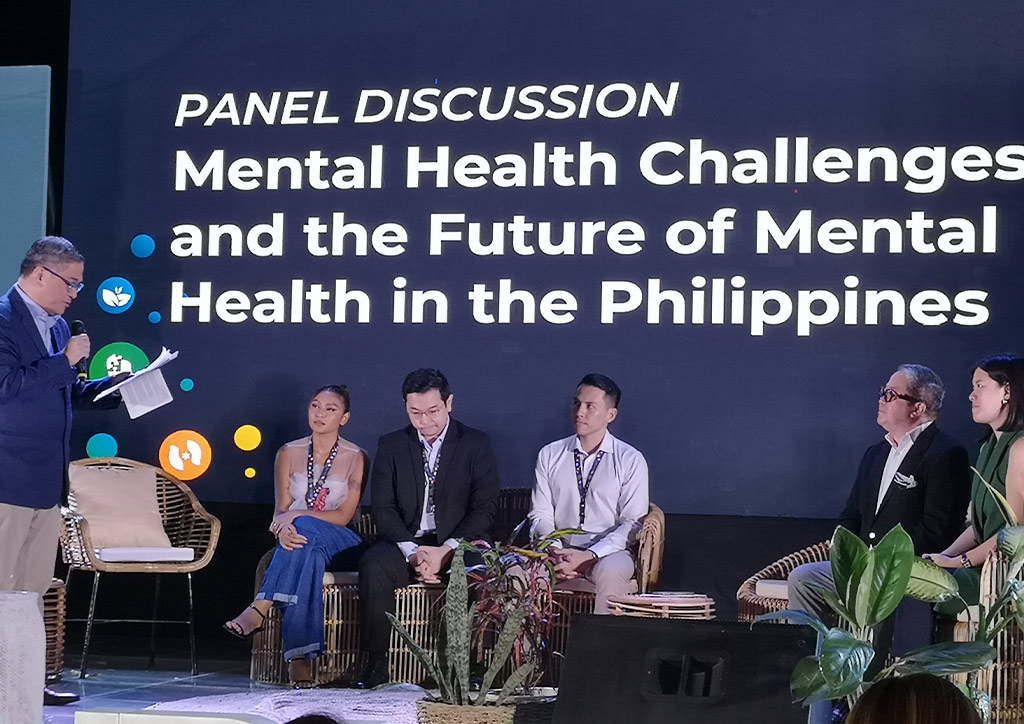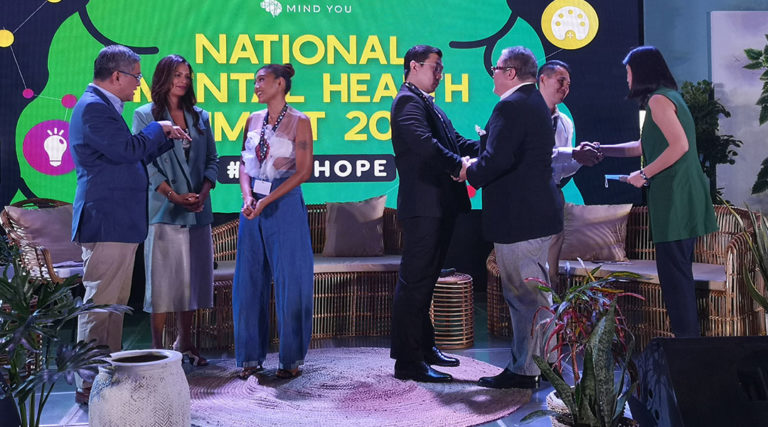Real Talk
Mental Health Begins Within the Family
At the recent National Mental Health Summit, pediatrician Dr. Francis Dimalanta, actress Nadine Lustre, and representatives of Mind You speak about the state of mental health in the Philippines.
Mental health has become the forefront issue of many families today. After the pandemic forced everyone to slow down, one of the challenges that people faced is how to get their lives back on track after staying at home and stopping activities for close to three years.
During the recently concluded National Mental Health Summit, questions on the state of mental health in the Philippines were discussed with actress Nadine Lustre, pediatrician Dr. Francis Dimalanta, and representatives of Mind You and the Department of Health.
Dr. Francis Dimalanta: It starts with the family
Pediatrician Dr. Francis Dimalanta said that to address the issue of mental health, most especially among children is through their mothers, especially during pregnancy.
“They’ll go through all these mental health issues as well,” Dr. Dimalanta said. “What we want to prevent and want to have, what we want to buy for our children which we cannot buy is self-esteem. We want to give them not false praises but for them to be whole.”
Citing the traumas the Filipinos have been through from natural to man-made calamities, Dr. Dimalanta stressed the importance of hope.
“What we need is hope, to offer hope, not to judge any person what they are going through, and to be just full of love.”

Nadine Lustre: The pandemic became an opportunity to deal with my issues
Nadine, who in recent years opened up about her struggles with mental health, recalled how she had to deal with her issues when she started in showbiz. “It’s different now because I’m older and know more,” she said. “I’ve learned lessons along the way. Before, it was really different because when I was new in the industry, I wanted to be perfect.”
“Growing up I didn’t know how to deal with my emotions because my parents really didn’t know how to deal with it.”
Doing her album at the height of the pandemic has helped Nadine come face to face with the issues that hounded her for years. “I saw the lockdown as the opportunity for me to deal with the issues that I swept under the rug,” she said.
Nadine on seeing the pandemic as a way to face the issues. #FindHope pic.twitter.com/c5iv9WjZRY
— Alexa Villano (@alexavillano) October 25, 2022
The Deleter actress also added that while the pandemic has slowed down projects for her and many artists, she believed it gave them time to reflect. “I really believe that the pandemic was a time for us to slow down and look at the things we haven’t really dealt with—just keep holding on because I really believe in timing.”
Addressing the silent pandemic
Dr. Dimalanta said it’s time that people go beyond just speaking about mental health and do more action.
“This is the silent pandemic that faces us for the next 10 to 20 years,” Dr. Dimalanta said. “I think coming together with forums like this will make us available and we have to walk the talk. What is it that we can offer children especially because it goes through different levels? Those born during the pandemic have what we call social malnutrition. They are delayed by 1 year, 7 months to 2 years.”
“So we’ve been seeing all the children with special needs like a 5-year-old that’s acting like a 3-year-old. Simply because they were made to stay at home and the parents have to double as a teacher and work. So each one is going through something. I would say we’re all going through the same storm but in different modes,” he added.
Dr. Dimalanta shared that one of the things they’ve been doing as pediatricians is introducing the importance of the arts. “We have to move to be inclusive. Bring back play, music, theater, and different types of arts.”

Helping forge a career path for mental health professionals
Mind You CEO Yuri Marshall said that they’ve been working closely with various private sectors and the Department of Health to put together correct data that can help them with more projects in the future.
“Sustainable career path needs to involve mental health professionals feeling like they are growing in their career, too. Also, improving their skill sets [and] improving their community dynamic so that they can speak to psychologists, sociologists, guidance counselors, and workers and get access to reliable data as well,” Yuri said.
“If we have enough data, we can produce enough programs that can be tracked long term. Because mental health is not going to be a 5-year journey for us here. It’s probably going to be a 100-year journey.”
Want to know more about mental health issues for the family? Check out these stories:
How Jerika Ejercito Overcame Depression
Christina Aguilera Tackles Body Image and Mental Health Issues in New Video
7 Ways Partners Can Support Moms with Postpartum Depression and Anxiety





